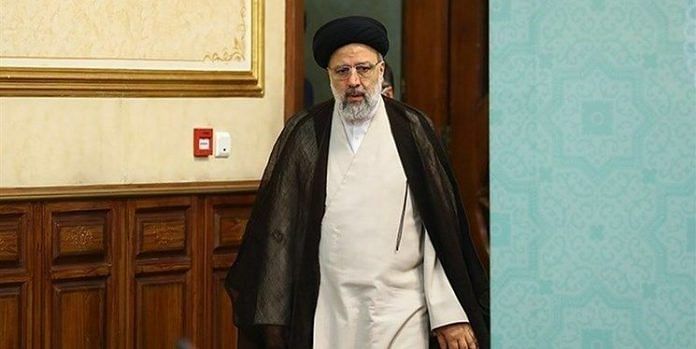With a month to go before his swearing in, Iran’s president-in-waiting Ebrahim Raisi is getting daily intimations of the many problems that await him: American missile attacks against Iranian proxy militias in Iraq and Syria, an Israeli drone attack on a centrifuge factory near Tehran, stalling negotiations with the world powers in Vienna, and calls for inquiries into his culpability in the country’s 1988 mass execution of political prisoners.
But arguably the most pressing predicament facing the next leader of the Islamic Republic is one that’s getting little attention outside the country. Strikes and protests have broken out in Iran’s critical petroleum industry, where workers are fed up with low wages and poor working conditions. The unrest underscores the gravity of the economic crisis confronting Raisi. It could also precipitate a serious political crisis at the start of his presidency.
Although independent trade unions are technically banned, labor activism has grown more common in recent years as the Iranian economy has been stifled by gross mismanagement, widespread corruption and the constraints imposed by U.S. sanctions. The additional strain of the coronavirus pandemic has left many employers, even state entities, struggling to pay salaries. As a result, there has been a spate of workers’ protests in many sectors across the country.
For the most part, the strikes have been small and local. But they have occasionally flared into street demonstrations large enough to alarm the regime in Tehran. Its usual response is to blame unspecified “enemies” and crack down hard on protesters.
But dissatisfied workers in the energy sector represent a threat of a much higher order. The regime has long extolled this labor cohort above all others as working-class heroes. This reflects not only the importance of hydrocarbons to the Iranian economy but the vital role petroleum workers have played in the country’s politics.
There might never have been an Islamic Republic if it weren’t for the widespread oil strikes in the late 1970s that paralyzed the economy. At the root of those protests were workers’ grievances over pay and conditions. Matters got out of hand at the end of 1978, when Shah Reza Pahlavi tried to end the strikes by force. After his troops opened fire on demonstrators in the oil-producing regions of the south, the protests spread to other sectors and turned distinctly political, setting the stage for the Shah’s ouster in the 1979 revolution.
You can see why any president, even one with Raisi’s hard-line credentials, would be reluctant to deploy security forces against today’s strikers.
The current unrest among energy-sector workers doesn’t match the intensity of the protests of 42 years ago, but it comes at a time of widespread dissatisfaction with the country’s political leadership that mirrors the discontent of the 1970s. The regime’s legitimacy is at its lowest ebb since the revolution: Turnout in last month’s presidential election was the lowest ever, and a sizable proportion of voters cast spoiled ballots, a telling indicator of the public mood.
Raisi will inherit an economy that has contracted in each of the past three years, even as the Iranian rial has lost 80% of its value and inflation is around a crippling 40%. The strikes and protests suggest workers are not inclined to give him much time to set things right.
The president-in-waiting is counting on the nuclear talks in Vienna to be concluded before his swearing in. An agreement would lift the American sanctions and allow Iran to ramp up oil exports, as well as freeing up assets that have been frozen for years. In turn, this would give the regime the resources to address the grievances of the protesting workers.
But Raisi will be keenly aware that the timeline is fraught with peril. Despite repeated claims by Iranian negotiators that a breakthrough is imminent in Vienna, the Biden administration is signaling that it is no hurry to lift economic sanctions. Even if predictions that Iranian oil exports will resume in the fourth quarter are accurate, that’s time enough for the discontent among energy-sector workers to rise to fever pitch.
That would leave Raisi dealing, in his first act as president, with an anti-regime revolt in the very sector that is crucial for the prospect of an economic turnaround. And should the protests spread to other industries, the regime of the Islamic Republic may yet be rattled by the forces that attended its birth four decades ago. — Bloomberg
Also read: Conservative hardliner Ebrahim Raisi records landslide win in Iran’s Presidential election



